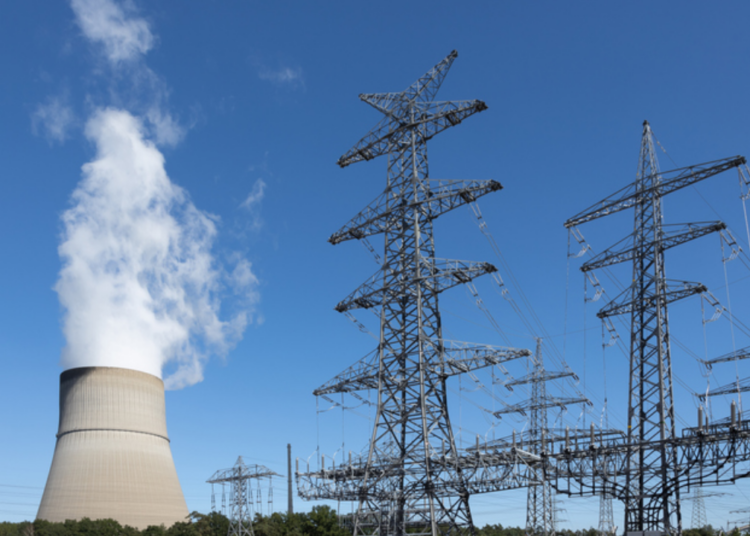Nigeria is assumed to be a country with vast natural resources and a population of over 200 million people. Even with these, the country’s electricity sector, just like most other sectors, is struggling to provide reliable and affordable electricity to its citizens.
The challenges facing the Nigerian electricity sector are numerous, complex and we dare say, self-inflicted. However, one potential solution that has gained traction in recent years is the proposition that demands that state governments should be allowed to build their own electricity infrastructure. Up and until now, it was difficult to experiment this solution because power was on the exclusive legislative list.
It is from this perspective that we underscore the importance and relevance of the recent signing into law, by President Muhammadu Buhari, of a constitutional amendment that grants states the license to generate, transmit, and distribute electricity. This means that states can now actually explore the possibility of generating, transmitting and distributing electricity without any legal bottlenecks.
What is more, states can now participate in the electricity supply business, which was previously the exclusive preserve of the federal government as administered by the regulator Nigerian Electricity Regulatory Commission (NERC).
This policy change could potentially improve the availability and reliability of electricity supply in the country, as states would now have more autonomy to generate, distribute and regulate power within their respective territories.
The new policy could also attract more private investors into the electricity sector, leading to increased competition and efficiency in the industry. State-owned electricity generation has numerous benefits, including increased control over energy production and distribution, more sustainable energy sources, increased energy security, and potentially lower costs for consumers. These benefits are particularly relevant in Nigeria, where the sector had faced numerous challenges.
One of the primary challenges facing the Nigerian electricity sector is inadequate power generation capacity. Despite being Africa’s largest economy, Nigeria’s electricity generation capacity is only around 13,000 megawatts, which is significantly lower than the country’s demand. This has resulted in frequent power outages and load shedding, which have had a negative impact on households and businesses across the country. By building their own electricity infrastructure, state governments can increase power generation capacity and provide more reliable electricity to their citizens.
Another challenge facing the Nigerian electricity sector is the poor state of the electricity infrastructure. Many transmission and distribution lines are outdated and in need of repair or replacement, which has resulted in significant losses of through inadequate transmission and distribution. This has made it difficult to expand the electricity grid to reach more people and businesses.
In the view of this newspaper, state-owned electricity infrastructure can help address this challenge by providing more targeted investment in electricity infrastructure and equipment.
In addition to these challenges, there are also issues with billing and revenue collection in the Nigerian electricity sector. Many customers do not pay their bills on time, which has made it difficult for electricity companies to invest in new infrastructure and equipment.
There are also issues with electricity theft, which has further reduced revenue for electricity companies and made it difficult to provide reliable and affordable electricity to customers. By building their own electricity infrastructure, state governments can potentially address these challenges by implementing more effective billing and revenue collection systems.
There are regulatory and policy challenges that have affected the Nigerian electricity sector. The sector is heavily regulated, with multiple government agencies responsible for different aspects of the electricity value chain. This has resulted in a lack of coordination and inefficiencies in the sector.
There are also issues with policy implementation and enforcement, which has made it difficult to attract private investment and improve the sector’s performance. By building their own electricity infrastructure, state governments can potentially create a more streamlined and efficient regulatory environment that is better suited to their specific needs.
With the new law in place, state-owned electricity generation has the potential to address many of the challenges facing the Nigerian electricity sector. By building their own electricity infrastructure, state governments can increase power generation capacity, improve the state of the electricity infrastructure, implement more effective billing and revenue collection systems, and create a more streamlined and efficient regulatory environment. While building state-owned electricity infrastructure is not without its challenges, the potential benefits are significant and could help transform the Nigerian electricity sector for the better.
In our considered opinion, there is a snag capable of turning this, otherwise, refreshing policy into another nightmare. It has been proved, over the years, that state governments are pathologically lazy and lacking in business acumen. Already used to being spoon-fed, will they even identify the latent benefits this policy has to offer? Blinded by political exigencies and the frenetic tendencies to loot and plunder their treasuries, will they summon the patience to invest in long term projects such as this? That is the question begging for answer. It is not about policy, there are littered around, on paper, very laudable policies. Implementation is the elephant in the room.





